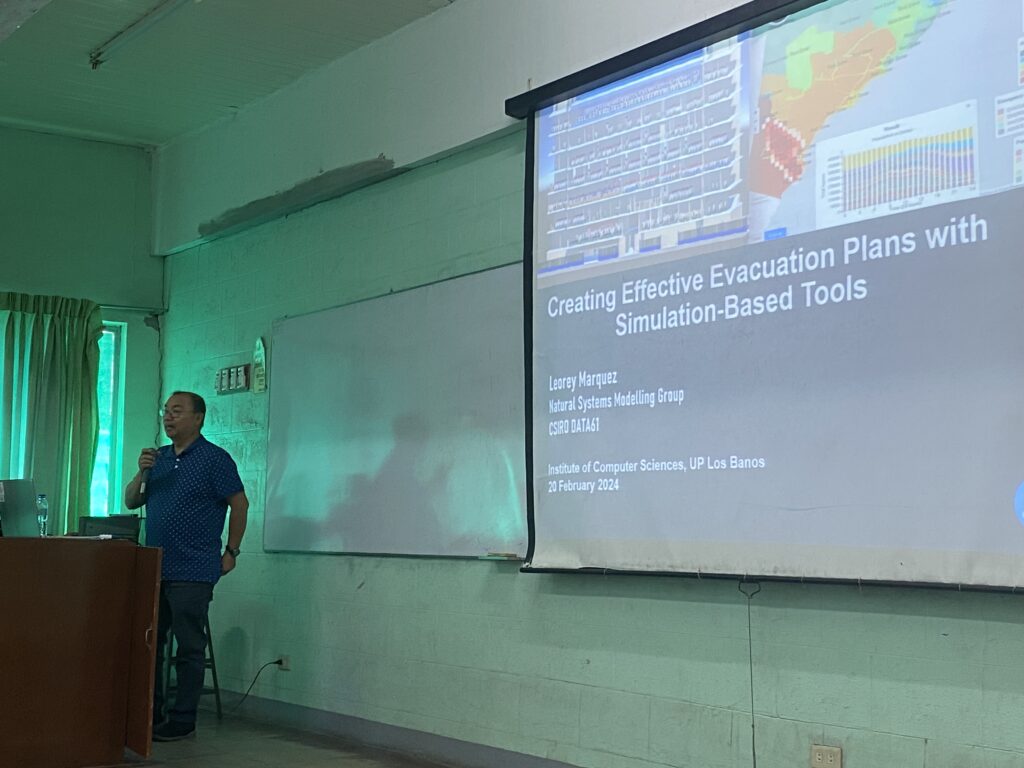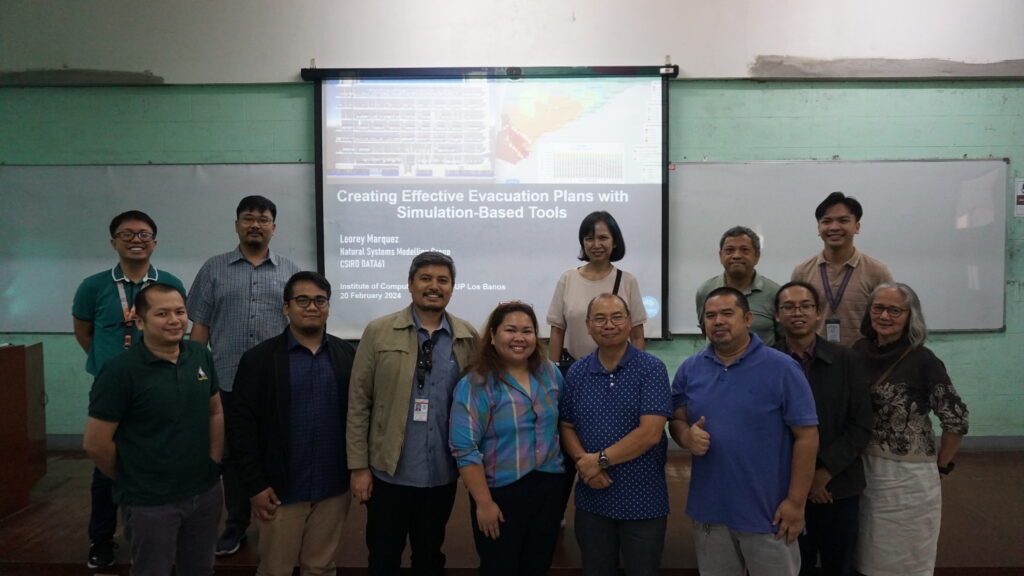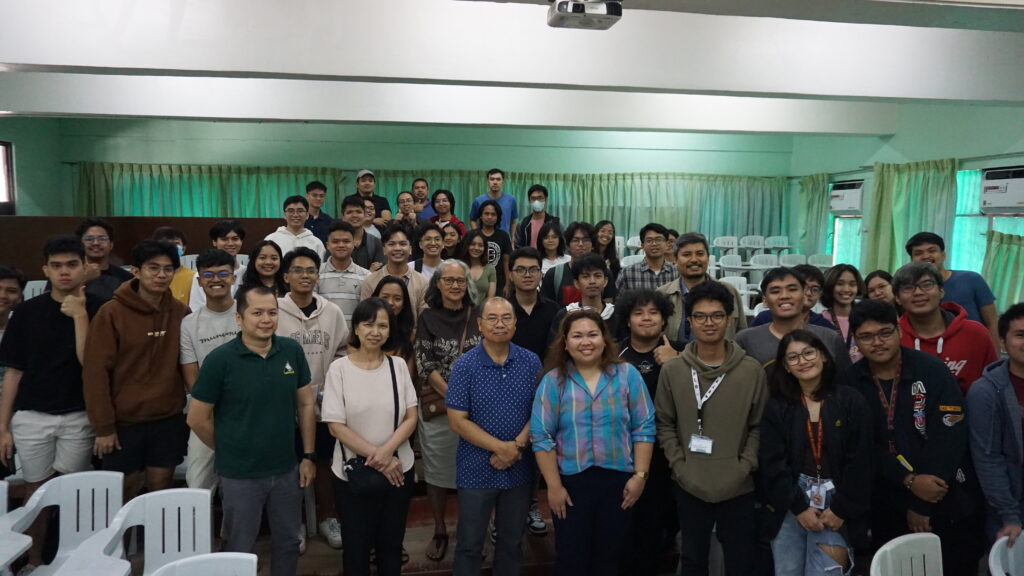
Dr. Leorey Marquez, a Senior Research Scientist with the Natural Systems Modelling Group at Australia’s CSIRO Data61, delivered a research presentation on February 20, 2024 at the Institute of Computer Science in UP Los Baños. He talked about how computer-based simulation tools can be used to generate useful data for analysis to create effective evacuation plans in the event of a natural disaster. He shared his invaluable knowledge gained through his research team’s work on evacuation plans developed through the simulation and analysis of hazards during natural disasters—from bushfires and floodings in Australia to simulating evacuation plans at a campus in Metro Manila in the advent of an earthquake. During the question and answer portion, Dr. Marquez advised that the best way to start doing research in computer-based simulation tools for natural disaster preparedness is to ask the decision-makers themselves what their burning questions are. This is the first of a planned series of research talks for 2024 hosted by the Research Division.


ABSTRACT
Recent catastrophic disasters in Morocco, Libya, Hawaii, Greece, Syria and Turkey have underscored the damage that floods, earthquakes, wildfires, and other hazards inflict on communities. The high number of fatalities in these cases is the result of the absence of an effective evacuation plan being implemented prior to or during the disaster. The task of conducting safe and effective evacuation is becoming more difficult and complex as natural hazards become more frequent and intense, the populated areas become more dense, the transport network remains inadequate, and the population requires more resources and services in order to evacuate. More computer-based decision support tools are being developed and used by emergency management to assist in sorting out the complexities involved in planning and evaluating multitudes of scenarios and in developing robust evacuation plans. This presentation describes three tools that apply agent-based simulation and the BDI (Belief-Desire-Intention) behavioural model to conduct evacuations of synthetic populations for three hazards under different scenarios and conditions. The result of these simulations allow emergency management to evaluate the performance of evacuation plans and identify issues for further study. It is hoped that continued engagement with community, government and industry will provide the feedback and support that will lead to further improvements with these tools.
ABOUT THE SPEAKER
Dr. Leorey Marquez is a Senior Research Scientist with the Natural Systems Modelling Group at CSIRO Data61. He has specialist expertise in agent-based simulation, GIS, mathematical modelling, database management and has developed numbers of decision support tools, for energy modelling (TERENCE), vehicle assignment and scheduling (DVASS), retail planning (LAIRD-W), transport modelling (TOPAZ2000) and emissions modelling (Spatial and Transport Emissions Assessment Module). His areas of research include disaster management, human services, food supply chains and logistics, land use-transport-environment (LUTE) modelling, network optimisation, expert systems, and object-oriented analysis and design. He is currently part of a consortium developing decision support tools and processes for evacuation planning and emergency management under bushfire and flood disaster scenarios in Australia. Know more about Dr. Marquez and his work through CSIRO’s website: https://people.csiro.au/M/L/Leorey-Marquez